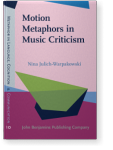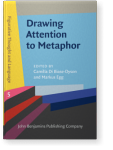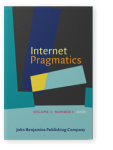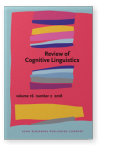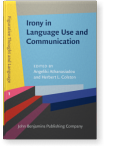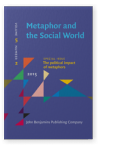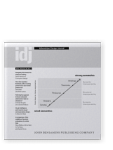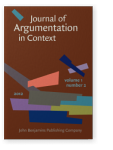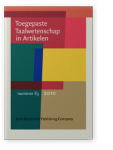Christian Burgers
List of John Benjamins publications for which Christian Burgers plays a role.
Book series
2020 The role of co-text in the analysis of potentially deliberate metaphor Drawing Attention to Metaphor: Case studies across time periods, cultures and modalities, Di Biase-Dyson, Camilla and Markus Egg (eds.), pp. 15–38 | Chapter
Taking Deliberate Metaphor Theory (Steen, 2015) as a starting point, this chapter investigates the way in which co-text influences the identification and analysis of potentially deliberate metaphor in discourse. While co-text plays a role in the identification and analysis of the linguistic and… read more
2020 Thinking out of the box: Production of direct metaphor in a social media context Internet Pragmatics 3:1, pp. 64–94 | Article
Metaphor production is a creative process of thinking out of the box, which can be of great communicative value to language users. In this study, we explored how metaphor production can be stimulated by different types of cues in an internet environment. Participants (N = 318) were invited to… read more
2018 On metaphorical views, dynamite, and doodlings: Functions of domain adjectives in metaphorical domain constructions Review of Cognitive Linguistics 16:2, pp. 431–454 | Article
This paper offers a systematic, bottom-up, investigation of the role of adjectives as metaphor signals in metaphorical domain constructions (MDCs) such as ‘budgetary anorexia’ and ‘economic crash’ within the framework of Deliberate Metaphor Theory (e.g., Steen, 2017). To this end, we analyse all… read more
2017 Chapter 4. Introducing a three-dimensional model of verbal irony: Irony in language, in thought, and in communication Irony in Language Use and Communication, Athanasiadou, Angeliki and Herbert L. Colston (eds.), pp. 87–108 | Chapter
We introduce a three-dimensional model for irony research, which is an extension of Steen’s (2008, 2011) three-dimensional model of metaphor and similarly argues that the study of irony requires three distinct dimensions: (1) language, (2) thought and (3) communication. Irony in language requires… read more
2015 How viruses and beasts affect our opinions (or not): The role of extendedness in metaphorical framing The political impact of metaphors, Perrez, Julien and Min Reuchamps (eds.), pp. 245–263 | Article
Based on the assumption that extended metaphor may constitute a case of deliberate metaphor and therefore has the potential to influence people’s opinions, this paper investigates whether extending a metaphorical frame in a text leads people to perceive policy measures that are in line with that… read more
2013 Tailoring fear appeals to lower-educated adolescents: The influence of modality and type of threat? Information Design Journal 20:1, pp. 32–46 | Article
Research on smoking behavior suggests that less well-educated adolescents are most susceptible to taking up smoking. This paper reports on an experiment that investigates the effects of adapting fear appeals to this target group. Threats were manipulated in terms of content (long-term health versus… read more
2012 Differences in actual persuasiveness between experiential and professional expert evidence Journal of Argumentation in Context 1:2, pp. 194–208 | Article
This study investigates the persuasiveness of different types of expert evidence. Following Wagemans (2011), two types of experts were distinguished that can be used in expert evidence: experiential experts (who base their expertise on personal experience) and professional experts (who base their… read more
2010 Lees Niet Verder! Ga Iets Nuttigs Doen: De verwerking van Meerdere Ironische Uitingen in Dezelfde Tekst Toegepaste Taalwetenschap in Artikelen 83, pp. 9–18 | Article
In this research, we investigated the influence of co-text (the text of which an utterance is part of) on the processing of ironic evaluations. In an experiment, we adapted and manipulated fragments from film, book and music reviews. Participants randomly read versions with either two ironie… read more
